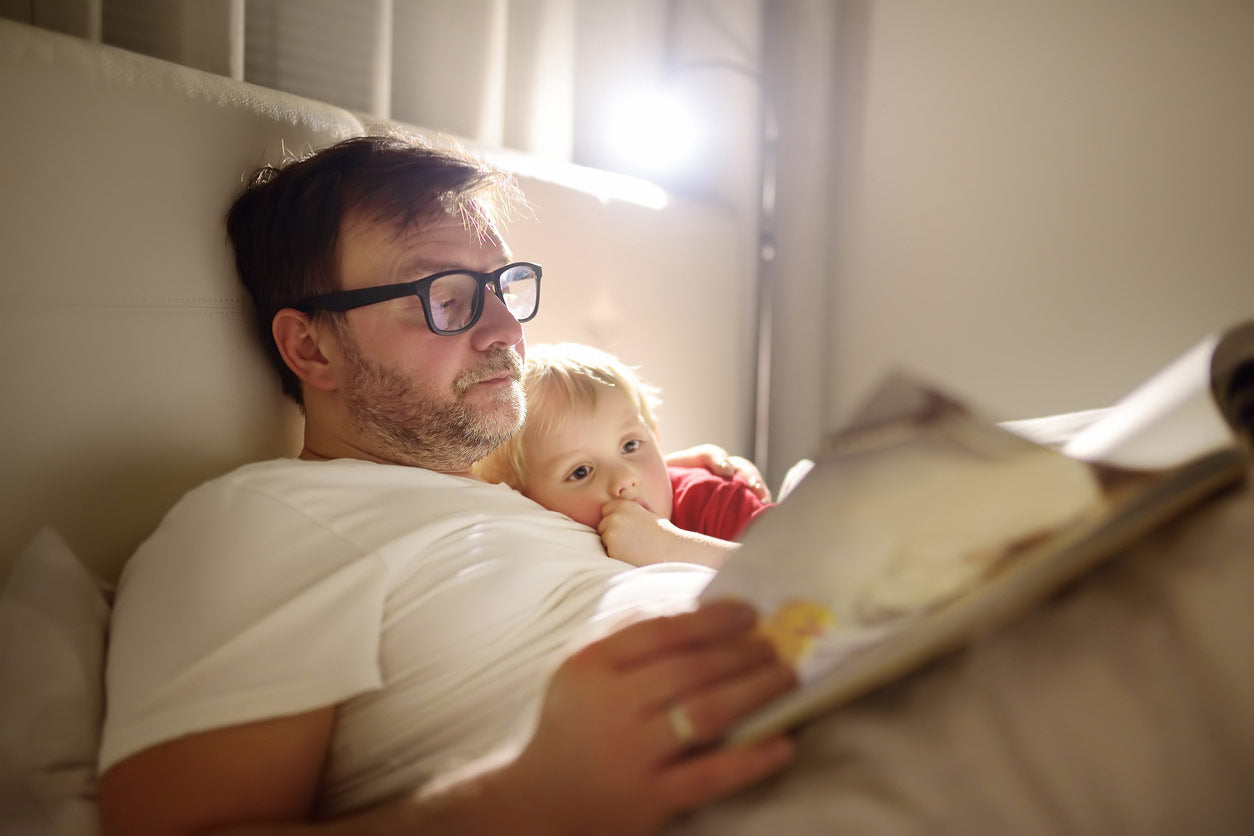
3 Ways Nutrition Could Be Impacting Your Child's Sleep
3 Ways Nutrition Could Be Impacting Your Child's Sleep
Sometimes it can feel like your little ones will never settle down at night. But could it be their diets that are keeping them from blissful slumber? In this article, Dormeo Sleep Expert Phil Lawlor offers his advice on which foods to avoid before bedtime.
As a parent, you know your children need lots of nutritious food to help them grow big and strong. But did you know that what they eat can also affect their sleep?
It could be that your little one finds it hard to fall asleep at bedtime. Or, they might seem to get enough rest, but find it difficult to focus during the day because the quality of their sleep isn’t up to scratch.
Either way, not only can avoiding certain snacks before bed increase their chances of a good night’s kip, but some foods can even help them achieve it.
Below, I’ll be taking you through the ways that nutrition can positively or negatively affect your child at night, as well as how to establish a healthy bedtime routine.

How does their diet affect their ability to fall asleep?
If your kids tend to get peckish in the evening, there’s nothing wrong with fixing them a small supper. But letting your kids have sugar and refined carbohydrates in the form of sweets, cakes, biscuits, and chocolate bars is a bad idea before bedtime, as these can increase hyperactivity at a time when they should be winding down.
High fat foods can also cause issues for sleepiness levels, as they can cause children's digestive system to go into overdrive which can keep them awake, so try to save greasy treats for during the day as well.
That doesn’t mean your little ones have to go to bed hungry, though. Instead, look for low sugar and fat foods that contain tryptophan, a natural sleep-inducing chemical commonly found in dairy products. Although it has a reputation for weird dreams, a small amount of cheese on wholemeal bread is a perfect sleepy-time snack.
Other tryptophan-rich foodstuffs your little ones can have for supper include nuts and seeds, peanut butter, bananas, honey, low-sugar cereals, and eggs. Try not to let them eat too much, though, as tryptophan doesn’t work as well on full tummies. So, give them small nibbly portions instead of a massive meal.
To make them smile and encourage them to eat healthy foods, make foodie faces with the TUM TUM Baby Weaning Set.
My child is thirsty. What can they drink before bed?
Getting enough to drink can help children sleep better for longer, as being hydrated helps to keep headaches at bay. Just make sure they’re choosing the right drinks — and they visit the bathroom before you tuck them in!
Children should not be drinking things like coffee at any time of the day because this high-caffeine drink can have serious consequences for sleep quality. But did you know that tea, cola, and even hot chocolate all contain stimulating caffeine too? To be on the safe side, it’s best to steer clear of these liquids in the evening.
Just like sweets, sugary drinks can also keep your kids alert past their bedtimes. Even seemingly healthy fresh fruit juices contain a tonne of the sweet stuff, so stick to something milder like water or a weak glass of sugar-free squash before bed to help keep the rush at bay.
If sleep doesn’t come easily, encourage them to try drinking a glass of milk. Milk contains tryptophan and calcium, which together can act like a sedative and help your little ones fall asleep.
If they’re struggling to nod off, try warming it up a little bit, too, as this reminds them of when they drank milk as babies and triggers unconscious responses associated with sleep.

How can I help them establish a healthy sleep routine?
While watching what they eat can go a long way towards it, the best way to get your bairns bedtime ready is to establish a healthy sleep routine. This involves doing the same activities to get ready for bed around the same time every night, so their brains and bodies get into the habit of falling asleep.
Getting a wash, changing into their pyjamas, then settling down to read a book is a great basic pattern to follow, but you can tweak it to suit their needs and interests. I would however suggest limiting screen time including TVs at least two hours before bed as it can be too overstimulating, and the blue light can affect their ability to fall and stay sleep.
You may also want to keep checking their bedroom to make sure it’s a good environment to sleep in. Take into account the temperature of the room, how dark it can get, and how comfy the bed is.
While many people believe a soft bed is best, a firmer mattress can actually encourage better sleep by supporting your child’s body properly. So, it’s worth looking into investing some new bedroom kit if you little one is struggling to nod off.
Ewan the Dream Sheep is a perfect companion at bedtime with his soft night light and reassuring womb sounds.
Are your children restless at night? The tips in this guide can help you address some of the issues that may be causing them to struggle with falling sleep. Sweet dreams!
